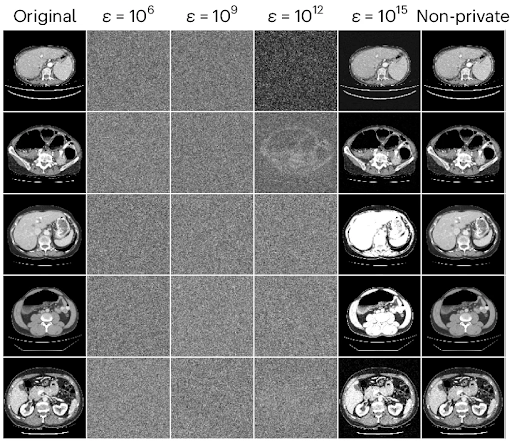In the fast-paced environment of healthcare, particularly within oncology practices, efficient staff management is crucial for delivering quality patient care. The complexities of patient needs, scheduling demands, and resource allocation require a structured approach to workforce management. With the emergence of innovative technologies, especially artificial intelligence (AI), healthcare organizations are finding new ways to streamline their operations. This article discusses how AI can optimize on-call schedules in oncology practices across the United States, ensuring that healthcare professionals are where they are needed when they are needed.
The Challenge of On-Call Scheduling in Oncology
Oncology practices face unique challenges in scheduling due to the unpredictable nature of cancer treatments, patient consultations, and emergency scenarios. Traditional scheduling often leads to staff overextension, burnout, and a lack of visibility for both providers and patients. Timely interventions in cancer treatment processes make it imperative for practices to adopt efficient systems.
On-call scheduling is particularly demanding, requiring precise communication among staff members regarding shift assignments and patient care responsibilities. Practices that struggle to manage these schedules risk not only employee satisfaction but also patient outcomes. According to LeanTaaS, healthcare facilities that use AI-driven solutions can tackle these challenges by enhancing communication, improving workflow efficiency, and optimizing resource allocation.
Embracing AI for Predictive Scheduling
Predictive analytics, powered by AI, allows oncology practices to forecast staff requirements based on historical patient data and expected demand patterns. For instance, algorithms can analyze past patient flow to determine busy periods and schedule providers accordingly. Organizations such as QGenda have reported that predictive scheduling can reduce labor costs while maximizing productivity by aligning provider schedules with patient demand.
By utilizing AI technologies to predict when oncology staff will be most needed, practices can ensure that the right personnel are available at the right times. This reduces the stress associated with last-minute shift changes and supports provider morale through more equitable scheduling.
Centralizing On-Call Management
A critical advantage of utilizing AI-driven solutions is the ability to unify on-call schedules. Tools like QGenda facilitate a centralized platform where all on-call rotations, staff availability, and patient appointment needs are visible to administrators and clinicians. This single source of data minimizes miscommunication and optimizes time management, allowing for real-time adjustments to schedules.
Having immediate access to on-call schedules enables oncologists to quickly adapt to changes, ensuring that patient care is prioritized. This is especially important in treating cancer, where timely interventions can lead to better outcomes. Streamlined communication among healthcare staff results in fewer delays and a better overall patient experience.
AI and Workflow Automations in Oncological Settings
Streamlining Operations with AI
AI does not only improve scheduling; it also automates a range of administrative tasks that typically consume valuable time and resources. For example, AI-driven tools can manage routine administrative functions such as:
- Automated Shift Swapping: Staff can easily swap shifts using mobile applications integrated with the scheduling platform. This allows for more flexibility and immediate adjustments without extensive human intervention.
- Time and Attendance Tracking: AI solutions like QGenda’s Time and Attendance module enhance payroll accuracy and ensure that staff time is recorded correctly. By automating these processes, practices can focus more on patient care rather than administrative burdens.
- Predictive Insights for Better Staffing Decisions: Access to historical data allows practices to make informed decisions regarding staffing based on expected patient volumes. The integration of reporting tools can provide trends, helping administrators allocate resources better.
By combining AI with effective change management strategies, oncology practices can overcome traditional inefficiencies and embrace more intelligent workflows. Successful organizations, such as UCHealth, have shown that moving away from manual methods towards automated systems leads to improved patient access and streamlined healthcare delivery.
Enhancing Provider Engagement and Reducing Burnout
Provider morale is a significant factor influencing patient care quality in oncology practices. High levels of burnout among healthcare providers can negatively impact patient interactions and care delivery. AI-powered scheduling promotes equitable work distribution among oncology staff, allowing for a balanced workload. By employing tools that facilitate shift swapping and make it easier to request time off, healthcare administrators can help their staff manage schedules more effectively.
Furthermore, improving communication channels between oncologists and administrative staff can enhance provider engagement. As Jim Venturella, CIO of WVU Medicine states, implementing modern workforce management solutions can automate and simplify processes, providing a more engaging experience for physicians and nurses.
Utilizing Data-Driven Decision-Making
The advantages of AI extend into data analytics, which plays a role in improving operational efficiency. QGenda Insights provides healthcare organizations with visual data representations to understand workforce and space trends. These insights can help with proactive planning, enabling practices to allocate resources better and improve patient access and satisfaction.
Oncology administrators who leverage data-driven decisions can anticipate patient needs more effectively. Understanding peak times for patient visits can lead to optimized scheduling, allowing oncologists to spend more time with patients without the stress of over-scheduling or underutilizing staff.
Addressing Labor Costs and Resource Management
Managing labor costs remains a concern for healthcare administrators. Traditional scheduling practices often result in underutilization or overutilization of staff resources, leading to increased expenses. AI solutions help streamline labor management by reducing redundancy and maximizing workforce efficiency.
For instance, predictive scheduling can inform managers of the most efficient allocation of staff based on anticipated patient demand. Practices that have adopted AI technologies are experiencing significant cost reductions and improved management of their resources. Reports indicate that systems like QGenda enable practices to fill shifts faster, even in the face of last-minute staffing needs.
Integrating Technology with Oncological Practices
As healthcare technology continues to evolve, integrating advanced tools into daily operations is becoming more critical. Oncology practices across the United States are increasingly relying on AI to address daily challenges in scheduling, staff management, and patient care. Technology integration is essential for staying competitive in a fast-changing healthcare environment.
Embracing these technologies not only leads to operational improvements but also changes how oncology practices engage with their patients. Using AI-driven capacity management solutions can lead to better patient access, optimized care delivery, and reduced wait times.
As organizations such as LeanTaaS illustrate, adopting capacity command centers powered by cloud-based AI technology can enhance operational effectiveness. These command centers centralize management functions, providing healthcare administrators with real-time insights that allow for quick adjustments in staffing and resource allocation.
The Future of On-Call Scheduling in Oncology
The future of on-call scheduling in oncology practices is leaning towards increased reliance on AI solutions. With advancements in technology, it is becoming possible for healthcare organizations to integrate AI into their operations.
Practices that adopt AI-driven scheduling and resource management tools will likely see improvements in patient care, increased staff engagement, and reduced operational costs. By focusing on intelligent scheduling and workflow systems, administrators can ensure their teams are better prepared to meet the demands of cancer care.
As healthcare continues to embrace digital transformation, the potential of AI to address operational inefficiencies and enhance care delivery is promising. The shift towards a technology-assisted model is essential for future success in oncology and beyond.
By managing on-call schedules through AI and data-driven decision-making, oncology practices can improve operational efficiency, support provider satisfaction, and enhance patient care. Embracing these innovations will benefit both healthcare practices and the patients they serve, ensuring timely and effective treatment for cancer.
The post Optimizing On-Call Schedules in Oncology Practices Using AI Support first appeared on Simbo AI – Blogs.











